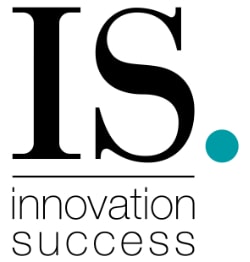Innovation Coaching in a Chaotic World: A Call for Change
I believe that in today’s turbulence, innovation is not a luxury. It is the critical change agent. We face interlocking crises in climate, inequality, technology disruption, and social instability. The old systems simply cannot solve the complex challenges of now.
And yet I see it time and again: talented people trapped in broken systems, stifled by structures, incentives, or fear.
To me, that is not just inefficient: It’s borderline criminal. And it happened to me.
We must break free from the constraints that dim our potential.
If you are in a role where innovation matters, to your organisation, to your role, to the difference you want to make, then I believe coaching isn’t optional. It is what can move you from stuck to unstoppable.
What Innovation Coaching Is (and What It Isn’t)
When I say “innovation coaching,” I mean more than teaching or consulting. Coaching is not about me giving you the answers. It is a strategic partnership that helps you think more clearly, act more decisively, and lead more effectively in complexity.
Here is what innovation coaching is – and what it is not:
- It is not training. It is not about dumping content or tools. You do not need another workshop.
- It is not consulting. I am not prescribing the solution. I help you uncover it.
- It is not mentoring. I won’t just tell you how I did it. The focus is on your context.
- It is a space for insight, accountability, and system-level influence.
In innovation coaching, our work spans two domains: your individual skillset and performance, and the systems surrounding you: culture, incentives, metrics, and leadership behaviours. That dual focus is what makes innovation coaching different.
It is how you make sure your talent does not get lost in the friction of your organisation.
The 5 Big Wins of Innovation Coaching (Backed by Evidence)
These are the five core benefits I see again and again in innovation coaching.
Each one is reinforced by research and grounded in my experience coaching senior innovation leaders, entrepreneurs, and scale-up teams across Europe and beyond.
ONE. Faster, Smarter Learning
You gain clarity faster. You iterate with intention. You treat experiments as learning, not failure.
A meta-analysis of executive coaching found that coaching produces significant behavioural changes, especially in decision-making and performance outcomes (source: PMC10272735).
This suggests coaching helps you move faster, reflect more effectively, and adapt under pressure.
TWO. Embedded Capability, Not Dependency
The goal of coaching is not to create reliance. It is to build your innovation capability so that you can keep progressing long after the engagement ends.
Studies consistently show that coaching strengthens self-regulation, goal setting, and performance habits in a lasting way (source: Grant, Passmore & Cavanagh, 2010).
In short, you walk away better equipped to keep going on your own.
THREE. Systems Thinking for Real Impact
Much innovation fails not because of bad ideas, but because the system resists. Organisational politics, misaligned incentives, or outdated structures get in the way.
In my coaching, I use the BTI-OS – the Breakthrough Innovator’s Operating System – to help you map and shift those systemic blockers. You start seeing the system you are working in, not just the task in front of you.
Research confirms that coaching contributes more to the implementation phase of innovation than to ideation alone (source: Journal of Management and Organisation, 2025). That is exactly where systems thinking matters most – turning potential into performance.
FOUR. Career and Leadership Differentiation
Innovation coaching helps you move from being the person with the ideas to the person who gets things done. Your leadership visibility goes up. Your influence grows. You develop strategic focus and delivery discipline.
Studies of executive coaching show improved leadership behaviour, better alignment of values and actions, and higher perceived credibility among peers and senior leaders (source: American University, 2023). This isn’t about hype. It is about measurable career progress.
FIVE. Resilience and Clarity in Chaos
Innovation leadership is hard. It is ambiguous, political, and emotionally demanding. Coaching gives you space to pause, make sense, and act with intent. You develop mental resilience and clarity even when everything around you is uncertain.
Research shows that coaching improves psychological capital, especially hope, resilience, and optimism, and those traits are critical to sustaining performance in complex environments (source: PubMed, 2023).
The best innovators I’ve worked with aren’t the brightest. They are the ones who stay grounded in the chaos.
Why GROW and BTI‑OS Together Are a Game Changer
The GROW model is the coaching method I was trained in. It stands for Goal, Reality, Options, and Will. It helps you clarify your purpose, understand your current context, explore your choices, and commit to action. I use it regularly.
But GROW alone is not enough if your system is broken.
That is why I developed BTI‑OS. This is a systems-thinking framework I use to help you see how your organisation’s structure, culture, incentives, and decision-making all interact.
By combining GROW and BTI‑OS, we can work both at the personal level and the systems level. That is what real change takes.
Here are some of the self-coaching questions I often use with clients to blend both models:
- What system am I working inside of?
- Where is energy being lost?
- Who benefits from the way things are now?
- Where is a small change that could trigger a bigger shift?
- What do I need to stop tolerating?
This combination of personal clarity and systemic insight is what separates surface-level coaching from transformation.
Why Most Innovation Leaders Don’t Succeed – and How Innovation Coaching Changes That
I have seen world-class innovators walk away from high-potential projects. Not because they failed, but because the organisation wore them down. Endless pilots. No ownership. Siloed teams. Shifting sponsorship. It happens all the time. It was this that happened to me…
Coaching creates a space where you can name that reality, reflect on it without judgment, and then act with agency. We identify the patterns. We reframe the challenge. We explore the interventions. And we make a plan.
I cannot guarantee that your organisation will suddenly become easy. But I can help you build the capacity to lead within it – or change it.
What to Look for in an Innovation Coach
Not all coaches are equal. If you are working at the edge of innovation, you need someone who understands that space.
Look for someone who has:
- Led innovation work themselves – not just read about it
- A structured coaching model like GROW, not just motivational energy
- A systems lens – someone who can see the context, not just the task
- A track record of helping people like you deliver outcomes
If we worked together, you should expect:
- A strategic diagnostic to understand your context
- Regular coaching sessions with structure and stretch
- The use of tools like BTI‑OS to identify system blockers
- Clear progress markers and accountability
If it is just another chat, it is not coaching. If it is just a pep talk it won’t make change happen.
Do You Need Innovation Coaching? Take the Quiz
Still not sure if innovation coaching is for you? Take this short self-assessment. Score each statement from 1 (strongly disagree) to 5 (strongly agree).
| No. | Ask Yourself This | Score (1–5) |
| 1 | I have a strong innovation vision, but I struggle to sustain momentum. | ☐ |
| 2 | I often feel blocked by system-level issues in my organisation. | ☐ |
| 3 | I have led or been part of innovation projects that mostly stalled. | ☐ |
| 4 | My organisation talks about innovation, but does not act like it. | ☐ |
| 5 | I feel like I am the only one pushing for change. | ☐ |
| 6 | I want to move faster and with more clarity. | ☐ |
| 7 | I suspect culture or structure is the real barrier, not technical feasibility. | ☐ |
| 8 | I have done training or read books, but I struggle to apply them at work. | ☐ |
| 9 | I know I am capable of more, but I don’t know how to shift the system. | ☐ |
| 10 | I want someone to hold me accountable and challenge my thinking. | ☐ |
Scoring:
- 40 to 50: You are ready. Let’s talk.
- 30 to 39: You are close. Coaching could unlock major shifts.
- 20 to 29: You are aware but under-leveraged. It may be time to change that soon.
- Below 20: You are likely stuck in an unsupportive system. Coaching can help you break through.
Final Thought: Break Free. Go Further.
Innovation is not about having more ideas. It is about bringing better ideas to life. That takes discipline, reflection, courage, and systems awareness. Coaching gives you all four.
If you know you are capable of more, if you are tired of spinning your wheels, or if you are ready to lead at a higher level, then innovation coaching might be your next smart move.
Learn more about how you can get Innovator’s Coaching
You don’t have to keep doing it alone. Let’s go further, together.
References
- PMC10272735, PubMed Central (PMC) database “The effects of executive coaching on behaviours, attitudes, and personal characteristics: A meta-analysis of randomised control trial studies”
- The State of Play in Coaching Today: A Comprehensive Review of the Field (2010), A. M. Grant, J. Passmore, M. J. Cavanagh, and H. Parker
- Journal of Management and Organisation, 2025

